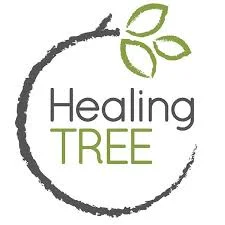Connecticut Local Accident Resources
Connecticut Local Accident Resources
Have You Lost Someone You Love in A Fatal Car Crash in Connecticut Today?
Here at Local Accident Reports, we understand that losing someone you love in a car accident is beyond heartbreaking and can leave you facing numerous challenges that feel insurmountable. You may be stuck with costly funeral expenses, lost income that you depended on from the person who died, and more. On this resource page, you will find useful information and resources concerning what to do after a fatal car crash in Connecticut. Every year, in Connecticut, hundreds of people unfortunately lose their lives in fatal traffic accidents. In 2022, approximately 360 individuals were killed in fatal crashes. Most often, auto collisions in Connecticut happen due to the actions of negligent drivers. Negligent driving can be displayed in countless ways; however, the majority of negligent drivers are intoxicated, distracted, over-tired, and traveling at unsafe speeds when they cause accidents to occur.
Resources for Grieving Families
Need help with requesting an official copy of the incident police report?
Financial Hardship Assistance
You may require additional help for fees related to legal assistance and/or medical bills. If this is the case, be sure to consider the following resources:
- Victim Compensation Program – The State of Connecticut Judicial Branch offers a full listing of eligibility, expenses, coverage, and benefits required for victims of violent accidents or criminal activity, in relation to motor vehicle crashes. It also links people to the application process as well as a program brochure.
- Victim Rights – Published by the State of Connecticut, this document provides information concerning the rights of residents victimized by a catastrophic motor vehicle accident caused by wrongdoing.
If You or a Loved One Were the Victims of an Accident Caused by DUI
Drunk driving is a terrible offense that can result in severe damages to innocent victims, their families, and friends. As reinforced by state law, the Connecticut DMV has set the limits of blood alcohol concentration (BAC) at 0.08% for adults (21 or older) and 0.02% for juvenile drivers (younger than 21 years). Currently, Connecticut ranks 39th among the states with severe problems related to drunk driving incidents. If you, a loved one, or a friend have been victimized by a DUI incident and require more in-depth support, visit the following links:
- Connecticut MADD– Mothers Against Drunk Driving seeks to provide endless support for victims of drunk driving incidents in the State of Connecticut. To speak with a representative at the national headquarters, call (877) ASK. MADD or (877) 275.6233. To contact Connecticut MADD, be sure to contact the East Haven headquarters at (800) 544.3690.
Accident Prevention Services in Connecticut
In recent years, the State of Connecticut has established tactics for preventing unfortunate motor vehicle accidents and resulting fatalities.
- Motor Vehicle Accident Prevention– Developed by the State of Connecticut, this program offers statistics concerning recent trends in fatalities and major injuries related to traffic accidents. Likewise, this site offers steps for accident prevention and resources of child passenger safety and public health.
- Injury Prevention – A program offered by the State of Connecticut to aid in the prevention of violent accidents, potentially fatal injuries, and crime-related motor vehicle crashes.
What Exactly Constitutes a Wrongful Death Case?
If someone loses their life due to the wrongful action of another person, the deceased person’s family can file a wrongful death claim against the responsible party.
A wrongful death claim is different from criminal charges, and neither process controls or affects the other. This means that if a defendant, is acquitted of murder, for example, they can still be sued by the surviving family of the victim for the wrongful death of the victim. A wrongful death lawsuit may be brought either for an intentional act or an unintentional act that leads to injury which ultimately causes death. Sometimes homocide cases do result in wrongful death lawsuits. Also common, a motorist who unintentionally causes the passing of another person in a car crash may be held responsible for wrongful death.
In order for you to successfully file a wrongful death claim, your lawyer must be able to prove the following four elements of negligence:
- The defendant (person who caused the accident) owed your loved one a duty of care. Generally speaking, the “duty of care” is the responsibility to act safely and mindfully to avoid causing harm.
- The defendant breached this duty by acting negligently. Evidence must prove that the negligent actions of the defendant or defendants breached their duty of care to your family member.
- Your loved one’s passing was caused by that breach of duty. You must be able to prove that the breach of duty, or wrongful action, of the defendant directly contributed to the passing of your loved one.
- The surviving family members and estate have incurred damages due to the death. Both the estate and the deceased victim’s family are eligible to recover financial compensation for the losses and damages they have suffered due to the wrongful death of a member of their family.
A wrongful death attorney can thoroughly investigate the circumstances surrounding the accident to ensure you have the strongest claim possible. They will handle filing the claim and all communication between you and the court as well as the opposing insurance company.
Who Can File Wrongful Death Case in Connecticut?
Different rules exist concerning who can file wrongful death claims in each state. In Connecticut, the decedent’s executor or personal representative is the only one who can file a claim for wrongful death, according to Section 52-555 of the Connecticut General Statutes. This refers to the person who oversees the estate. This person may be named in the decedent’s will or appointed by the court.
How is an executor determined?
When attempting to identify the executor of a wrongful death victim, the first place you may find information regarding this issue is the will of the victim. If an estate plan was prepared by the victim, their will will most likely designate this role.
In the case that an estate plan was not prepared, or if the victim’s will is invalid or silent regarding determining an executor, then an executor needs to be named by a probate lawyer. When this is needed, often, the probate court tends to appoint the spouse of the victim, their adult child, or another immediate member of the family – unless there is valid reasoning to name someone else.
If a wrongful death claim is won by the executor, the estate of the victim will receive the financial compensation. Generally speaking, an individual’s money and assets will be included in their estate when they die. Compensation for wrongful death is paid into the estate and then divided among the remaining family according to the decedent’s will or other planning documents.
Unfortunately, it is sometimes difficult to divide financial compensation between heirs for a wrongful death. For example, many individuals fail to include provisions in their estate plans concerning the division of unanticipated damages. If a precise asset fails to be addressed in a trust or will, it may be divided according to the basic stipulations of the will of the victim or under Connecticut Law. For example, if a person only had $20,000 in the bank at the time of their death, but the wrongful death law suit produces compensation of $500,000, then the total amount distributed according to the will’s instructions would be all of that, or $520,000.
Additionally, numerous individuals who wrongfully lose their lives may not have drafted estate plans or a will before their death. Many individuals procrastinate the process until it’s too late. When an individual loses their life without a proper will in place, Connecticut’s intestate succession laws come into play. If there is no trust, will, or other estate plans, these rules decide which family members are legally eligible to receive their estate.
Wrongful Death Lawsuits in CT: How Do They Work?
As discussed above, you must be able to prove that the wrongful action or inaction of another person directly caused or contributed to the passing of your loved one.
In Connecticut, there is a two-year statute of limitations (time limit) in which you must file a wrongful death claim from the time your loved one lost their life. If you do not file within two years of their passing, you will no longer be able to collect compensation.
We know that taking legal action may be the furthest thing from your mind at a time like this. However, bringing a wrongful death claim against the at-fault party can help lift the financial burden you may be facing at this time. It can also help hold negligent parties accountable for their wrongdoing and prevent further dangerous action in the future. A lawyer can help take care of the fine details of your claim so you can focus on your emotional well-being.
It is important to remember that, once a wrongful death suit is filed, it can take some time to complete. The length a lawsuit takes to run its course may be affected by:
- Whether a definitive cause of death exists, and;
- Whether the defendant has an admission of guilt.
It is common for the accused party to want to deny legal responsibility for the fatal incident, even if they know they are responsible. Sometimes, their defense is that the decedent (your loved one) contributed to their injuries or passing or that it happened in part or in whole due to the actions of another party.
Many wrongful death matters require some amount of litigation, even when blame is admitted by one party. Legal action may be required to figure out who caused your family member’s death and what percentage another party is at fault. The amount of time it takes to complete a wrongful death claim will be increased if the matter goes to trial.
What Compensation is Available in a Connecticut Wrongful Death Claim?
Following the loss of a family member in an accident, several types of compensation exist from the liable party. Several options for recovery are provided in Connecticut, most of which depend on the circumstances and facts of your unique case. In Connecticut, a wrongful death claim may include compensation for any or all of the following.
The Cost Of Medical Care or Treatment Due to Injury
Oftentimes, the decedent may have needed extensive medical care due to the injuries they sustained in the accident before they passed away. Due to this, substantial medical bills may have piled up. These bills can ultimately reduce the amount of money left for family members. A wrongful death action may be able to help you recover financial compensation that can help you pay for the costs associated with medical treatment your loved one needed before they died.
Lost Wages
Often, the deceased individual’s family was financially dependent on them. Without their income, their family may have a hard time getting by and meeting their day-to-day needs. A wrongful death claim can help recover lost earnings if you and your family were financially dependent on your loved one who has passed away.
Funeral And Burial Expenses
After the loss of a family member, funerary and burial costs, or crematory costs, can add up quickly. The finances of an estate can be strained by even a modest funeral. Financial compensation can be awarded to surviving you for the final expenses incurred by your loved one.
Pain And Suffering
In some cases, injured victims may go through a lot of pain and suffering. This can include ongoing physical pain, or, it may be mental or emotional pain that hurts their ability to live a fulfilled life. A wrongful death claim can include damages for pain and suffering experienced by the deceased before they lost their life.
Punitive Damages
In Connecticut, when someone loses their life due to reckless or deliberate actions, punitive damages may be awarded by the court. Punitive damages in Connecticut are usually limited to lawyers’ fees. These types of damages may be more difficult to obtain than other types of damages. However, a skilled wrongful death lawyer can investigate your case and help you figure out whether or not they may be available to you.
Other damages may also be available in a wrongful death claim. The types of damages available to you will depend mostly on the details of your case and the circumstances surrounding the death of your family member.
Can I File a Lawsuit If a Criminal Case Also Exists?
If criminal activity played a role in the death of your family member, a criminal case may be brought against the at-fault party. It’s important to know that this does not prevent you from filing a wrongful death claim. These two types of cases are separate and have no bearing on other. In fact, the standard of evidence is lower in a civil case than it is in a criminal case. Often, a wrongful death case is easier to win than to secure a guilty verdict against a criminal defendant.
Connecticut Grief & Trauma Resources
Resources by State
- Alabama
- Alaska
- Arizona
- Arkansas
- California
- Colorado
- Connecticut
- Delaware
- Florida
- Georgia
- Hawaii
- Idaho
- Illinois
- Indiana
- Iowa
- Kansas
- Kentucky
- Louisiana
- Maine
- Maryland
- Massachusetts
- Michigan
- Minnesota
- Mississippi
- Missouri
- Montana
- Nebraska
- Nevada
- New Hampshire
- New Jersey
- New Mexico
- New York
- North Carolina
- North Dakota
- Ohio
- Oklahoma
- Oregon
- Pennsylvania
- Rhode Island
- South Carolina
- South Dakota
- Tennessee
- Texas
- Utah
- Vermont
- Virginia
- Washington
- West Virginia
- Wisconsin
- Wyoming
Need Help? Call Us Today
We hope these resources were able to provide you with some relief today. We want to help as many people as possible across the beautiful communities that make up our country. Local Accident Reports exists to help those who have been injured in serious accidents and the surviving family members of those who have been tragically lost. In addition to reporting breaking traffic news, we provide the best resources possible to help you begin the process of moving forward after experiencing an injury or loss. Contact us for more information on how we can help you today.
Motor Vehicle Crash Deaths by Road User Type and State

Car Occupants
115

Pickup and SUV Occupants
46

Large Truck Occupants
4

Motorcyclists
57

Pedestrians
48








